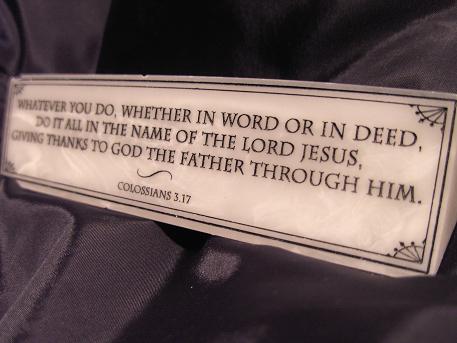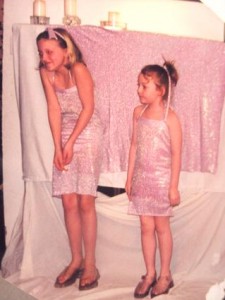I’ve always been a glutton… a photo glutton. I cam e by it naturally, since Mom was one, too. But as is often the case, the next generation takes everything to an extreme.
e by it naturally, since Mom was one, too. But as is often the case, the next generation takes everything to an extreme.
Mom got her first camera as a teenager, unique in the 1920’s. Her albums show the homes and rooms in which she grew up, as well as her friends. She established a babysitting business at 16 and pictured her charges. She taught piano lessons and photographed her students. She also snapped photos of the beaus she dated.
As a kid, I remember Mom stepping into a dark closet to change her film. If I put my hand on the outside doorknob, she’d shriek, “Don’t open that door! You’ll ruin my pictures!”
By the time I was grown, I knew photographs were important. Mom let us use her camera on occasion and bought each of us our own, encouraging us to chronicle life through a lens. Today I have the excess to prove I took her advice to heart.
I’d say 196 albums and 32 separate photo scrapbooks definitely constitute gluttony. Storage has been a challenge, particularly after we moved to a smaller house. I tried to pawn the albums off on several of our grown children, who take pictures religiously but store them on line. “Scan ‘em, Mom, and put ‘em all on a few disks. You’ll get your shelf space back.”
After studying that process, I know I don’t have enough hours left in life to complete that job. Besides, at the end of it, I’d still have to deal with the hard copies. Renting a dumpster just doesn’t seem right.
It’s interesting no one wants to house the albums, but everyone wants to page through them. When I make my next move, whether to an old folks home or heaven, the albums will be in jeopardy. Maybe our seven kids will divide them seven ways, though that would amount to 32 apiece, still a dilemma.
We’ve used many of our pictures to make greeting cards, as enlargements at parties, to prove tale-telling true or false, to remember who attended this or that event, and in this blog. Their most valuable use, however, is to insure we’ll never forget details. Photos of loved ones who’ve passed away become precious beyond description, and I’ve enjoyed studying Nate’s face in many of the albums since he died. The pictures remind me of all he’s done and who he was.
God has picture albums, too. He didn’t click a camera but described in visual detail the “photos” he wanted his “children” to remember. I counted 12 times he verbally reminded the Israelites of his parting of the Red Sea, a dramatic picture of power and creativity. “Don’t forget!” he’d say, as he reminded them he was still the same God.
He “showed” them his work during creation, how he provided manna in the desert, the patriarchs and their deeds and Christ’s work on the cross. These and many others were snapshots of history God wanted them (and us) to remember. In a way, the Bible’s 66 books are the albums, and their words are the pictures. On those pages, we “see” God and his truth. And just like in the Nyman albums, we see where we’ve come from. God’s photo collection also shows us where we’re going, which no earthly snapshots can do.
So, if the house catches on fire, I’ll try to grab our 196 + 32 albums, although it would be smarter (and quicker) to reach for the one album-set that truly matters, and that’s God’s.
“Give thanks to him who parted the Red Sea. His faithful love endures forever.” (Psalm 136:13)







